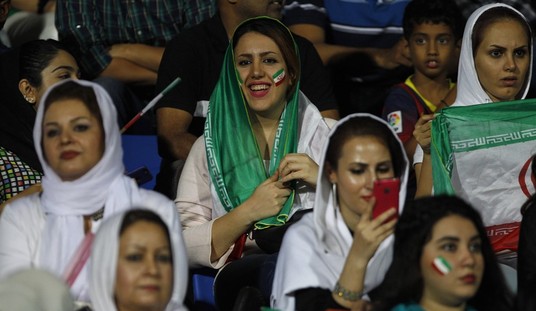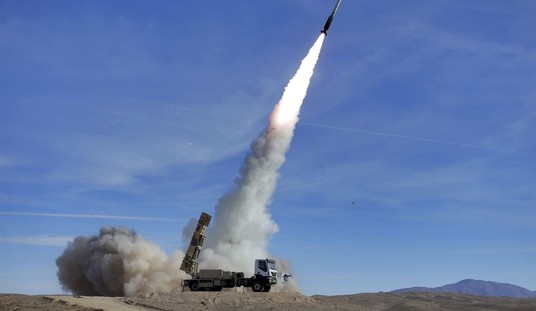The United Nations cultural agency has disgraced itself again, deciding at the last minute to postpone an exhibition of the 3,500-year relationship of the Jewish people to the Holy Land. This exhibition, co-sponsored by the Simon Wiesenthal Center, was due to open this past Monday at the Paris headquarters of the UN Educational, Scientific and Cultural Organization (UNESCO). But last week 22 Arab states sent a letter to UNESCO’s secretariat, protesting that this exhibition could endanger the “peace process.” (French text of the letter here, courtesy of UN Watch).
UNESCO’s secretariat — namely, its director-general, Irina Bokova — could have replied that any peace process that could be remotely endangered by a display of the long history of Jewish ties to the Holy Land is no peace process at all.
Bokova could have told the Arab states that UNESCO has no interest in trying to delegitimize the state of Israel at their behest, which is what this UNESCO delay is really all about. Bokova could have proclaimed that anti-Semitism has no place at the UN, and for any of UNESCO’s member states to insinuate it into the agenda is a jarring affront at a cultural agency dedicated, in the words of its motto (condensed from UNESCO’s charter and amended for political correctness), to “building peace in the minds of men and women.” She could have added that it is thug politics for many of UNESCO’s member states to employ the cultural agency as a vehicle for passing round after round of resolutions singling out Israel as a target of UNESCO condemnations. Bokova could have shown backbone and leadership by giving her blessing to the exhibition, “People, Book, Land — The 3,500 Year Relationship of the Jewish People to the Holy Land,” and insisting that it open on schedule. She could have turned up to celebrate it as an important element in the history of the Middle East, a genuine contribution to any real hope of peace.
Instead, UNESCO’s secretariat put out a press release last Friday, announcing that in the context of the Arab protest, “regrettably, UNESCO had to postpone the inauguration of the exhibition.” The press release went on to attribute this decision to UNESCO’s “relentless efforts to achieve consensus between Member States on all issues falling within UNESCO’s educational, scientific, and cultural mandate.”
That’s a fascinating admission, of sorts — implying that UNESCO is guided not by principle, or truth, but by “consensus.” And what, exactly, does UNESCO mean by “consenus”? UNESCO has 195 members. There is no sign here that they were all consulted and with one voice agreed to defer to the Arab states. For that matter, both the U.S. and Canada protested the decision to delay the exhibition. In other words, there was no consensus on any side of this matter. Rather, there was a relentless effort by UNESCO to justify an anti-Semitic decision by packaging it in a heap of UN baloney.
On Tuesday, UNESCO disgraced itself even further, trying to deflect criticism with yet more baloney. Out rolled another UNESCO press release, this one saying “UNESCO wishes to reaffirm that the exhibition has not been cancelled but postponed.” Apparently there is now a discussion going on with the Simon Wiesenthal Center, in which UNESCO wishes to “finalize the last points” (what “last points”? The exhibition was in the midst of being set up for a Jan. 20th opening, when UNESCO last week abruptly pulled the plug). The opening date has now been moved to June.
Meanwhile, as UNESCO last week began shunting the Jewish history display out of the way in the name of the “peace process,” the UN in New York, also in the name of the “peace process” was launching an International Year of Solidarity with the Palestinian People. More on that in my Forbes article on “‘Peace’ and Prejudice at the United Nations” — where evidently some people are more equal than others.
UNESCO is now touting its plans on Jan. 27 to commemorate the Holocaust (or might UNESCO, in the interest of consensus, postpone that, as well, should any member state object?). At least UNESCO is not trying to deny that piece of history. But when UNESCO and the UN reward and promote bigotry in the name of peace, selectively “postponing” a few thousand years of Jewish history in deference to those who would try to rewrite reality by censoring Israel’s claim to a place in the Middle East, that is a step toward inviting the next Holocaust.
Back in 2011, UNESCO lost its U.S. funding when its members voted to admit the Palestinians to full membership before they had satisfied their Oslo promises to arrive at viable statehood by way of negotiations with Israel. That triggered U.S. laws forbidding government funding to any international body that might attempt this end run. Since then, UNESCO has been lobbying for the U.S. to override its own laws in order to re-open the money spigot and resume lavishing some $80 million per year in U.S. taxpayer dollars (with a quarter billion or so of “arrears” thrown in) on this UN hub of selective “consensus,” which masquerades as a “cultural” agency. UNESCO’s problem — amid the luxuries of its central Paris headquarters — is not a lack of funding. It is a desperate lack of a moral compass.









Join the conversation as a VIP Member